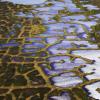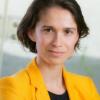
Discussion series on tipping elements, irreversibility, and abrupt change in the Earth system. This event in the series focuses on permafrost.
This discussion series aims to advance the knowledge about tipping elements, irreversibility, and abrupt changes in the Earth system. It supports efforts to increase consistency in treatment of tipping elements in the scientific community, develop a research agenda, and design joint experiments and ideas for a Tipping Element Model Intercomparison Project (TipMip).
The series is a joint activity of the Analysis, Integration, and Modeling of the Earth System (AIMES) global research project of Future Earth, the Earth Commission Working Group 1 Earth and Human Systems Intercomparison Modelling Project (EHSMIP) under the Global Commons Alliance, and the Safe Landing Climates Light House Activity of the World Climate Research Program (WCRP). IIASA co-hosts the scientific secretariat of Working Group 1 of the Earth Commission and is one of the organizers of these events.
The events (60-90min each) will be held monthly and are open to the public.
This event in the series focuses on permafrost.
- Introduction and objectives of the webinar – Victor Brovkin and Claire Treat (5min)
- Permafrost and climate change – what are we observing ? – Hanne Hvidtfeld Christiansen (20min)
- The Permafrost Carbon Feedback and potential tipping points - Gustaf Hugelius (20min)
- Questions and moderated discussion (20min)
The final 25min have been reserved for informal discussions on the research agenda and the development of a Tipping Element Model Intercomparison Project (TipMip).
The event will be recorded. Recordings of the events in this series can be accessed here.
Registration
Please register. The Zoom link to the event will be sent to all registered participants the day before the webinar.
Organizing institutions
Analysis, Integration, and Modeling of the Earth System (AIMES)
The Analysis, Integration, and Modeling of the Earth System (AIMES) project is an international network of Earth system scientists and scholars that seek to develop innovative, interdisciplinary ways to understand the complexity of the natural world and its interactions with human activities.
Through international science coordination and partnerships, AIMES addresses questions beyond the remit of a single institution or discipline to understand the complex interactions between biogeochemistry, Earth system dynamics, and socioeconomic conditions under global environmental change. This strategy requires a new level of coordination between disciplinary or process-focused modeling and observations in order to make progress in understanding, predicting, and managing the Earth as an integrated system. AIMES is a global research project of Future Earth.
The Earth Commission is a global team of scientists with the mission to define a safe and just corridor for people and planet. Working Group 1 Earth and Human Systems Intercomparison Modelling Project (EHSMIP) of the Earth Commission will identify, assess and model key interactions that regulate the state of the planetary (i.e., the physical climate system, the cryosphere, oceans, terrestrial biosphere systems, cycles of water, nutrients and carbon), and human systems. This will inform setting targets for a stable and safe planet, and will help us in developing and understanding pathways that are compatible with these targets.
The scientific guardrails defined by the Earth Commission will guide the Science Based Targets Network in developing tangible science-based targets tailored to cities and companies. The Earth Commission is hosted by Future Earth, the world’s largest network of sustainability scientists, and is the scientific cornerstone of the Global Commons Alliance.
World Climate Research Program (WCRP) Safe Landing Climates
The World Climate Research Programme (WCRP) The Safe Landing Climates Lighthouse Activity is an exploration of the routes to “safe landing” spaces for human and natural systems. It will explore future pathways that avoid dangerous climate change while at the same time contributing to the United Nations Sustainable Development Goals (SDGs), including those of climate action, zero hunger, clean water and sanitation, good health and well-being, affordable and clean energy, and healthy ecosystems above and below water. The relevant time scale is multi-decadal to millennial. This event is part of a WCRP Light House Activity.
Upcoming Events
Potsdam Institute for Climate Impact Research (PIK) & Online
German IIASA Networking Event: "Systems analysis for a sustainable and peaceful future"
Online and Austrian Academy of Sciences (Doktor-Ignaz-Seipel-Platz 2, Vienna)
Human Agency to Navigate the Anthropocene
Humboldt University of Berlin
